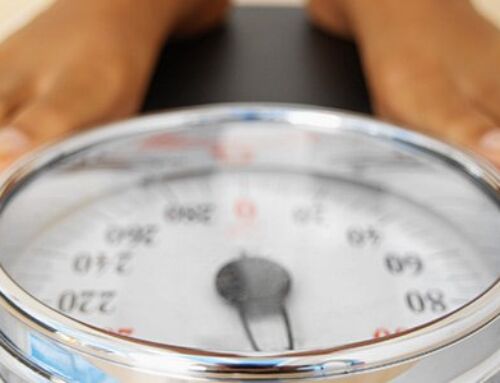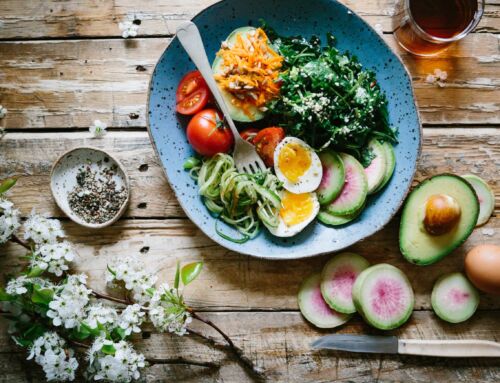When I first got my period (yes, this is a back in my day story) there were two options when it came to menstrual care products: tampons and pads. There was no further information surrounding these products, you either used one or the other and that was that. There was, however, a whole heap of shame surrounding these products. You know, don’t let anyone know it was ‘that time of the month’ or even worse, let someone see you carrying said ‘sanitary item¹’ to the bathroom, that was a fate worse than death as a 13-year-old. I am happy to say that these days there is less stigma and shame around our monthly cycle. Thank goodness, because during those years it was exhausting. I wish I could say that I was a confident 13-year-old who didn’t care who knew I was menstruating, but it was the late 90s, early noughties and things were different! I’m thankful that I now get to spend my days talking to women about their menstrual cycles, and if you’ve had a consult with me you’ve probably heard my catch phrase “Hi I’m Sam, I like to talk about periods and poo, so there’s no shame here, we’re about to become best friends!”. Whilst we go in-depth about their cycles, symptoms, and health goals, we often don’t get an opportunity to go deep about menstrual care products and why choosing the right one is so important to not only vaginal health but also whole-body health.
So why is having different, healthier menstrual care options so important?
The primary ingredient in tampons and pads is cotton, which is heavily sprayed with pesticides and herbicides during the growing cycle², add in bleach and binding chemicals during the production phase and you’ve got the perfect storm of toxins. The vulva and vagina is a highly permeable space, meaning that anything we put in or close to this area will be absorbed through the mucous membrane into our tissues and bloodstream. Chronic exposure (think, every month for 40ish years!) adds to our toxic burden, increasing the risk of cancer, disrupting the endocrine system, and causing oxidative stress and metabolic changes. Thankfully we are in a time of infinite choice and in the last few years, the menstrual care product industry has flourished with some amazing women-led companies bringing holistic health, technology, and creativity to our nether regions. Hooray! Gone are the days of binary options, enter informed choice, and a plethora of options.
Know your options
Menstrual Cups: a reusable bell-shaped (although this can vary depending on the brand) silicone cup that can be used for up to 12 hours a day, then emptied, rinsed, and reinserted. They do take some getting used to in terms of insertion, and removal and feel slightly different from tampons, however with a little practice, are comfortable and safe to use. An additional benefit of menstrual cups is they allow the user to monitor blood loss, which up until this point had been purely subjective and based on guesswork. The average cup holds between 25-50mls. If a person is losing more than 80mls of blood per cycle then we consider this heavy bleeding and there may be an underlying issue. Being able to more accurately track blood loss is helpful, especially when we’re working on improving energy or iron levels, even managing the nervous system!
Period Underwear and Reusable Pads: washable and reusable underwear and pads with built in layers for absorption. Period underwear are great for those with a light flow or for the tail end of your cycle where things are moving, but perhaps much lighter. Just like regular underwear with the added support of leak and odour resistant absorptive layers. Reusable cotton pads work in the exact same way as period underwear except they function like a normal pad or panty liner that can be removed. Both period underwear and reusable pads can be washed and used time and time again and are gentle and safe for your whole body.
Organic Tampons and Pads: most tampons and pads are made from conventionally grown cotton (see above why this is bad), others are made from man-made materials such as rayon (also not good). Organic tampons and pads on the other hand, are made from bleach-free, pesticide free, organic cotton; making them gentler for your body and biodegradable for the planet (the tampons at least, pads and pantyliners do contain some plastic to stop leakage). It is important to keep in mind that tampons should be used correctly; i.e: the correct absorbency for your flow and for no longer than four hours. Why? As mentioned above, the vagina is really good at absorbing stuff, if you preemptively use a tampon larger or longer than needed, the tampon absorbs not only blood but moisture from your vagina which can lead to tearing of the sensitive tissue, irritation, and even bacterial infections. If changing your tampon is inconvenient for you, I suggest you try a menstrual cup instead!
Side notes
1 Sanitary products imply there is something unsanitary about the menstrual cycle, which I hope by now you know is just not the case. However, if you still need convincing, may I remind you that menstruation is the result of ovulation, without ovulation human life would cease to exist. It’s as simple as that. It’s not unsanitary when you cut your finger trying to prize that avocado seed out, so it’s really not that different when you bleed from your vagina every month. So if you are still experiencing shame (or putting shame on others) surrounding the menstrual cycle I would recommend you read such books as Women Code by Alissa Vitti, The Period Repair Manual by Lara Briden or Period Power by Maisie Hill.
2 In 2019, the United States passed the Menstrual Product Right to Know Act, stating that ALL ingredients in menstrual products must be listed on the packaging so consumers could make an informed decision. Sadly that is not the case in Australia, we’re still catching up on health equity. This means it’s even more imperative that you choose your menstrual care products consciously. Opt for brands that are transparent in their ingredients and manufacturing such as Tsuno, Juuni, Tom Organic, and Scarlett – all Australian owned brands.
Yours in health,
Samantha Wilson




